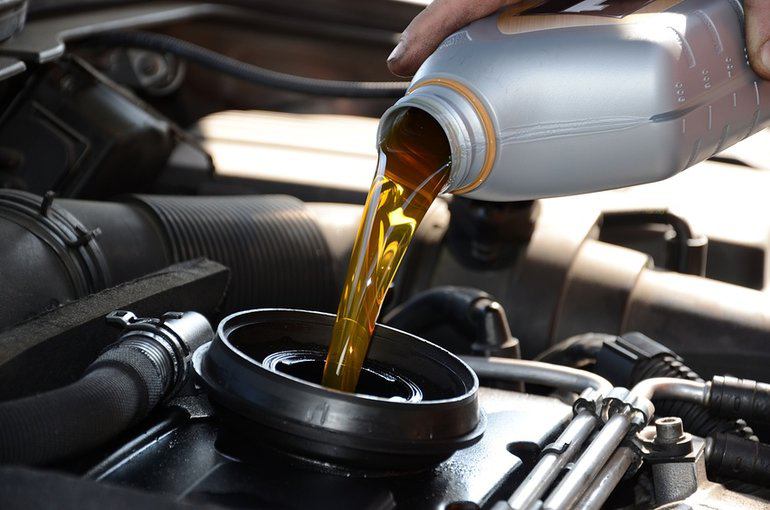Maximize Your Vehicle'S Performance With Regular Oil Changes
Preserving your vehicle's efficiency is a complex endeavor, with routine oil modifications standing out as an essential component. Fresh engine oil plays a pivotal role in guaranteeing optimal lubrication, decreasing friction, and stopping wear on necessary parts. Lots of vehicle drivers neglect the signs that show a demand for an oil modification, possibly endangering their vehicle's longevity.
Relevance of Routine Oil Modifications
While numerous vehicle proprietors may ignore the significance of routine oil modifications, overlooking this crucial upkeep job can cause severe effects for engine performance and durability. Engine oil plays an essential duty in oiling moving parts, reducing friction, and preventing getting too hot. With time, oil degrades because of exposure to warmth and impurities, which decreases its performance.
Falling short to alter the oil consistently can cause the accumulation of sludge and debris, which can block essential engine parts and cause enhanced wear. This not only endangers engine effectiveness but can additionally result in pricey repair services and even complete engine failing. In addition, old oil loses its ability to counteract acids created throughout combustion, which can lead to rust and more damages.
Additionally, several car makers recommend certain oil change intervals, often based on mileage or time. In summary, regular oil adjustments are not simply a tip; they are an essential component of accountable lorry upkeep that secures the engine and enhances total performance.
Benefits of Fresh Oil
Altering to fresh oil uses many advantages that directly boost engine efficiency and efficiency. New oil minimizes friction in between engine elements, which not just lessens wear yet additionally adds to smoother procedure.
Furthermore, fresh oil effectively cleans the engine by suspending contaminants and protecting against sludge build-up. In time, oil becomes contaminated with dust, steel particles, and burning byproducts. Consistently changing oil ensures that these unsafe materials are eliminated, advertising a cleaner and much healthier engine atmosphere.
Moreover, fresh oil help in optimum temperature level guideline. It dissipates heat more effectively, stopping overheating and potential damage to engine components. This is especially crucial during peak performance scenarios, where heat buildup can hinder engine performance.
Signs Your Oil Requirements Transforming
Engine oil is the lifeline of your car, and recognizing when it requires changing is essential for keeping optimum performance - Oil Change Lockhart. Numerous indicators suggest that it's time for an oil change, and staying vigilant can protect against engine damages and expensive repair work
First, inspect the color and uniformity of the oil. Fresh oil is usually amber and smooth, while old oil may show up dark and abrasive, showing contamination and lowered performance. An adjustment in thickness can also represent that the oil has damaged down and is no more appropriately oiling engine components.

One more caution indicator you can try these out is the oil change light on your control panel. This sharp works as a tip that the oil has reached its lifespan or that there is an underlying issue requiring attention. In addition, unusual engine noises, such as knocking or ticking, may recommend not enough lubrication as a result of degraded oil.
Finally, if you observe oil spots or pools under your lorry, it might show a leak that find out here now necessitates prompt examination and possible oil adjustment. Listening to these indications will certainly guarantee your engine runs efficiently and effectively.
Picking the Right Oil
Selecting the appropriate oil for your vehicle is essential for ensuring ideal efficiency and long life. This support will certainly route you towards the proper viscosity grade, such as 5W-30 or 10W-40, which indicates the oil's thickness at different temperature levels.
Following, take into consideration the kind of oil: standard, artificial, or a mix. Traditional oil is stemmed from petroleum and appropriates for older automobiles, while artificial oil supplies remarkable defense and performance for modern engines, particularly under extreme problems. Artificial blends incorporate the benefits of both and are often a cost-efficient option.
Additionally, search for oils that satisfy market requirements, such as API (American Oil Institute) or ACEA (Association des Constructeurs Européens d'Automobiles) certifications. These signs make certain that the oil has been evaluated for high quality and performance. Inevitably, choosing the appropriate oil not only boosts engine efficiency yet also adds to the total wellness of your lorry, leading the means for smoother driving experiences.
Oil Modification Regularity Recommendations

Factors affecting oil modification regularity include driving conditions, such as stop-and-go website traffic, extreme temperature levels, and pulling heavy tons. Under severe problems, it could be sensible to change the oil much more often to stop engine wear. Furthermore, some modern-day automobiles come furnished with oil life tracking systems that provide personalized referrals based upon driving practices, which can additionally maximize the oil modification routine.
It's vital to consult your owner's manual for particular referrals tailored to your vehicle. Abiding by these guidelines not just maintains engine health and wellness yet likewise boosts fuel performance and decreases emissions. In verdict, go to the website normal oil changes, timed properly based on different aspects, are a basic element of automobile maintenance that can significantly affect performance and long life.
Conclusion

Comments on “Book your routine Oil Change Lockhart with our professional service team.”